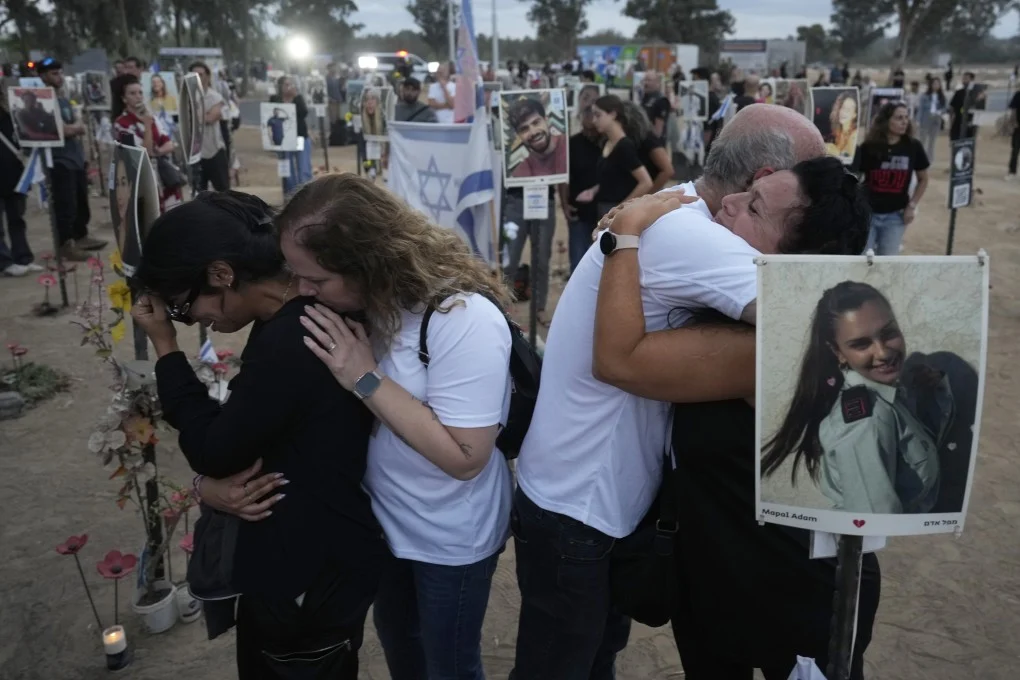Today marks the melancholy year since Hamas launched the attack on Israel on October 7th, 2023 – an event that shocked the world and set Middle Eastern conflicts ablaze. That same day, Hamas terrorists mounted a coordinated assault, slaughtering over 1,200 innocent Israelis in one of the deadliest attacks Israel had seen in decades. The rapid violence of the strike that saw the kidnapping, raping as well as killing of men, women, children and caught Israel completely off-guard. Bereaved, the country had no choice but to go on the offensive and confront Hamas in a new phase of the war with the terror group.
The Strike and Israel’s Right to Self-Defense
This was a not only a military exercise but also a terror exercise to frighten and upset Israelis and their government. Hamas with support from Iran has used Gaza as a weapon for attacks on Israel for years and has repeatedly endangered the security and lives of the state. Following the attack, Israel went on to strike Hamas military facilities and infrastructure to break the terrorist organization’s ability to do more.
Then as the fighting continued, Hezbollah another Iran-allied militant group, intensified its presence by opening a second front to Israel from Lebanon. Hamas-Hezbollah coordination — both proxy regimes of Iran — brought to the forefront the greater regional power dynamics. Once again, Israel had to deal with these terrorist groups – and with their Iranian sponsors.
Iran’s Place and US Policy Position.
So much instability in the Middle East in recent years was caused by the rise of Iran and the influence of the US foreign policy, in the hands of the Biden administration, has been under heightened scrutiny. Compared with the diplomatic efforts under Donald Trump (Abraham Accords, for example), that brought peace between Israel and various Arab countries, the last three and a half years have been the opposite of stable in the region. The Abraham Accords, brokered by the Trump administration, set precedents of landmark negotiations between Israel, the United Arab Emirates, Bahrain, and other Arab countries for an enlightened, peaceful Middle East.
But with President Joe Biden things changed. Perhaps worst of all, the Biden administration released billions of dollars in Iranian assets frozen under Trump back to Iran. This brought the worry that, while the money was supposed to be used for humanitarian aid, it could also have helped Iran indirectly to support Hamas, Hezbollah and other terrorist organizations. These funds, critics charge, have fueled the terror and missile attacks on Israel, potentially making the US complicit in the violence that followed. Iran has been notorious for funding front groups and regional unrest and many regard the Biden administration’s decision as dangerously inexperienced, perhaps financing these bloody attacks.
Middle East in Chaos.
Almost immediately after the Abraham Accords, the prospects for a more integrated Middle East had begun to become apparent. Arab countries and Israel were beginning to engage economically, technologically, and proved that the peace was within reach. But violence, increased in the past year due to the heinous acts of Hamas and Hezbollah, has pushed those tenuous agreements close to disaster.
Iranian, boosted by the flow of money and diplomatic amnesty, has since continued to pump cash and arms into Hamas and Hezbollah, as pawns to manipulate the area and assert its influence. The conflict has wreaked havoc in both camps, but there is no denying Israel’s right to fight terrorism. No country should have to suffer at the hands of the targeted killing of its own population, and Israel’s response, brutal though it may be, is what must be done to make itself sustainable in a dangerous world.
Accountability for What We Do.
The Middle East has remained unstable, and it’s becoming more and more difficult to find out what happened to the Biden administration that helped to create it. While President Biden has called out Israel’s right to self-defense, the Iran policies his administration pursued have given Iran an even greater sense of power. The release of billions of dollars to Iran and the recent violence from Hamas and Hezbollah serve as stark reminders that U.S. foreign policy mistakes can have devastating consequences for international security.
October 7th is about much more than the tragedy that Israel faced, but also about the broader geopolitical breakdowns that have made terror possible. Iran’s sponsorship and encouragement of terrorist groups such as Hamas and Hezbollah is a still the key to peace in the region. To the world at large, we never need to look a greater eye to see whom one must hold responsible, not just for these awful crimes but for those who allow them to happen.
Israel battered but not demolished will continue to fight enemies that desire its destruction. But the world — and most of all the US — needs to rethink how it looks at the Middle East so as not to further empower the very forces that upend the area and create tension.
See Reuters and The Times of Israel for more information about the current conflict and the global reaction.

